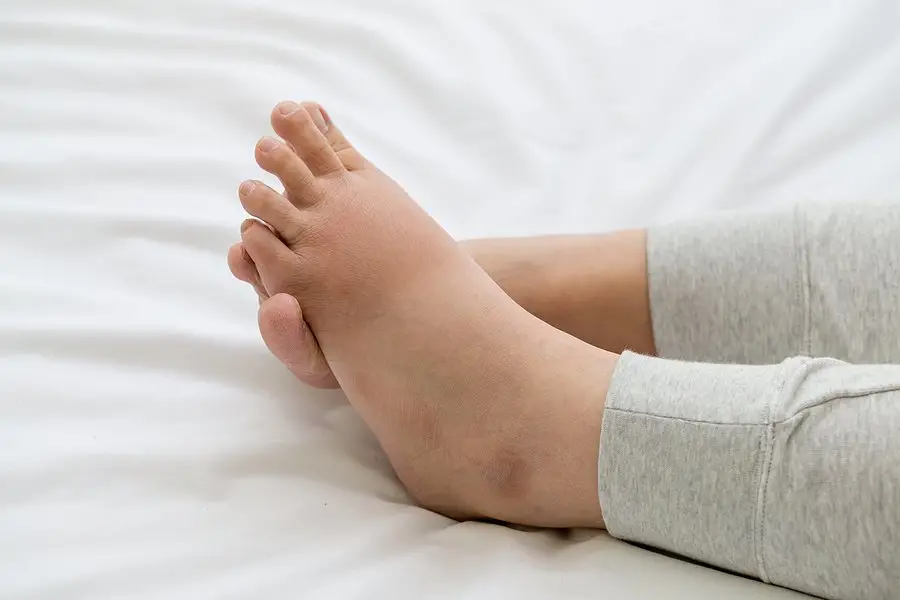Understanding Water Retention: Causes, Symptoms, and Solutions
Water retention, also known as edema, occurs when the body accumulates excess fluid. This condition often leads to noticeable swelling in the hands, feet, ankles, and legs. While occasional water retention is normal, persistent or severe cases may indicate underlying health issues that require attention. Understanding its causes, recognizing symptoms, and adopting effective remedies are essential for managing and preventing this uncomfortable condition.
Causes of Water Retention
There are several factors behind water retention, including:
- Dietary Habits: Consuming too much salt causes the body to retain water to balance sodium levels.
- Hormonal Changes: Fluctuations in hormones, particularly during menstruation or pregnancy, can trigger fluid retention.
- Medications: Certain drugs, such as steroids or blood pressure medications, may cause swelling.
- Medical Conditions: Heart, kidney, or liver diseases can lead to fluid accumulation as the organs struggle to regulate water balance.
- Inactivity: Prolonged sitting or standing can cause fluids to pool in the lower extremities, resulting in swelling.
Identifying the root cause is the first step toward finding the most effective treatment.
Recognizing the Symptoms
Water retention typically manifests through:
- Swelling: Puffiness in the hands, feet, or other areas.
- Skin Changes: The skin may appear stretched or shiny.
- Indentations: Pressing on the swollen area often leaves a temporary dent.
- Stiffness: Joints may feel rigid due to the swelling.
Early recognition of these symptoms allows for timely intervention.
Why Staying Hydrated Is Essential
It may seem counterintuitive, but drinking enough water is vital for preventing fluid retention. When dehydrated, the body hoards water as a protective mechanism. Proper hydration helps flush out excess sodium and toxins, enabling the kidneys to function efficiently. Aim for at least 8 glasses of water daily, or more if you’re physically active.
Dietary Adjustments to Combat Water Retention
- Reduce Sodium: Limit salt intake by avoiding processed and fast foods. Instead, flavor meals with herbs and spices.
- Increase Potassium: Potassium-rich foods like bananas, oranges, and spinach counteract sodium and promote balanced fluid levels.
- Focus on Whole Foods: Incorporate fresh fruits, vegetables, lean proteins, and healthy fats for optimal body function.
Natural Remedies and Recipes to Reduce Swelling
1. Diuretic Foods
Certain foods act as natural diuretics, helping the body expel excess water:
- Cucumber: Hydrating and rich in anti-inflammatory properties.
- Watermelon: Packed with water and essential electrolytes.
- Citrus Fruits: Provide vitamin C and assist in reducing puffiness.
2. Herbal Teas
Drinks like green tea, parsley tea, and dandelion tea have diuretic properties. Enjoy 1-2 cups daily to alleviate swelling naturally.
3. Epsom Salt Soaks
Epsom salt baths draw out excess fluids and reduce inflammation. To create a soak, mix 1/2 cup of Epsom salt in warm water and submerge your hands or feet for 15-20 minutes. Repeat several times a week.
Healthy Recipes to Fight Water Retention
Anti-Inflammatory Smoothie
- Ingredients: 1 cup kale, 1 cup pineapple, 1/2 cucumber, 1 tbsp chia seeds, 1/2 lemon (juiced), 1 cup coconut water.
- Instructions: Blend all ingredients until smooth and enjoy in the morning for a hydrating boost.
Detoxifying Soup
- Ingredients: 1 onion, 3 garlic cloves, 4 cups low-sodium vegetable broth, 1 cup celery, 1 cup carrots, 2 cups spinach, parsley.
- Instructions: Sauté onion and garlic, add broth and vegetables, simmer for 20 minutes, and season to taste.
Lifestyle Changes for Long-Term Prevention
- Regular Exercise: Physical activity improves circulation, preventing fluid buildup.
- Leg Elevation: Raising your legs above heart level reduces swelling in the lower extremities.
- Compression Wear: Compression stockings provide support and improve blood flow.
- Stress Management: Chronic stress can disrupt hormonal balance, leading to water retention. Practice mindfulness, yoga, or meditation for relaxation.
- Adequate Sleep: Rest supports the body’s natural fluid regulation processes.
When to See a Doctor
If water retention is persistent, severe, or accompanied by symptoms like chest pain, shortness of breath, or rapid weight gain, consult a healthcare professional. These could signal serious conditions such as heart or kidney issues.
Conclusion: Take Control of Your Body’s Balance
Water retention is a manageable condition when approached with the right strategies. From dietary adjustments and natural remedies to lifestyle changes, small but consistent efforts can significantly reduce swelling and discomfort. Staying informed about your health and seeking professional advice when needed ensures long-term well-being and fluid balance.
Take action today and embrace these tips to lead a healthier, more comfortable life.

